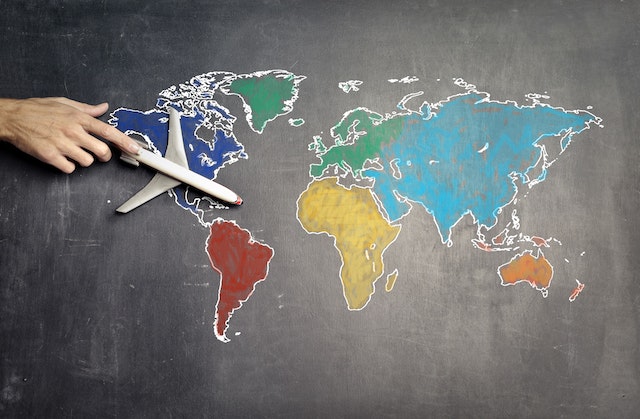When traveling to South Asia, it's important to understand and appreciate the diverse cultures that exist in the region. Bangladesh, Nepal, Bhutan, Pakistan, Sri Lanka, Maldives, and India are the countries of South Asia. There are many things to see here. Here are some cultural aspects to consider when visiting South Asian countries:
1. Religion: South Asia is home to several major religions, including Hinduism, Buddhism, Islam, and Sikhism. Religion plays a significant role in the lives of people in this region, so it's important to be respectful of religious sites, practices, and customs.
2. Dress code: South Asian countries have specific cultural norms when it comes to clothing. In more conservative areas, it is advisable to dress modestly, especially when visiting religious sites. Women may be expected to cover their heads, shoulders, and legs, and removing shoes before entering certain places may be required.
3. Greetings and respect: Greetings vary across South Asia. In many countries, it is customary to greet others with a "Namaste" or "Salaam" with a slight bow or placing your hands together in prayer-like fashion. Show respect to elders and people in authority by using appropriate titles and using a polite tone.
4. Food and dining etiquette: South Asian cuisine is diverse and delicious. Be open to trying local dishes, but be aware of dietary restrictions or cultural practices, such as vegetarianism or the avoidance of certain meats. When dining, it is common to eat with your right hand in some countries, while others may use cutlery. Following local customs will show respect.
5. Social customs and hierarchy: South Asian societies often place importance on hierarchical relationships and respecting elders. It is customary to address older people with appropriate honorifics and to defer to their opinions and decisions. Refrain from criticizing or arguing with older individuals, as it may be considered disrespectful.
6. Festivals and celebrations: South Asia is known for its vibrant festivals and celebrations. Diwali, Eid, Holi, Navratri, and many other festivals are celebrated with great enthusiasm. If possible, try to experience these festivals firsthand, as they provide valuable insights into the local culture and traditions. Visiting Dhaka in Pohela Boishakh is a good example.
7. Language: South Asia is linguistically diverse, with multiple languages spoken in each country. While English is commonly understood in urban areas, it is beneficial to learn a few basic phrases in the local language. This effort will be appreciated by locals and can enhance your travel experience in Bangladesh or any other South Asian country.
8. Personal space and physical contact: Personal space norms may vary across South Asian countries. It's important to be aware of and respect personal boundaries. In some cultures, physical contact like handshakes or hugs may not be common, especially between men and women or among people who aren't close relatives.
9. Gender roles and cultural expectations: South Asian societies often have traditional gender roles and expectations. It's important to be aware of and sensitive to these cultural dynamics. Avoid making assumptions or judgments based on Western standards and respect local customs and traditions.
10. Art and architecture: South Asia has a rich heritage of art, architecture, and craftsmanship. Visit historical sites, palaces, temples, and museums to appreciate the intricate details and craftsmanship. Learn about the symbolism behind various art forms, such as paintings, sculptures, and textiles, to gain a deeper understanding of the region's culture.
If you want to start your South Asia tour, start visiting Dhaka. Dhaka is connected to almost all other South Asian countries by air. You can move to other Bangladeshi cities like Sylhet or Chattogram from Dhaka easily.
Remember, South Asia is a diverse region, and cultural practices and customs can vary significantly from one country to another or even within regions. It's always a good idea to do some research and consult local guides or experts to gain a better understanding of the specific cultural nuances of the place you're visiting. It will help you to make a hassle-free vacation.

Post a Comment